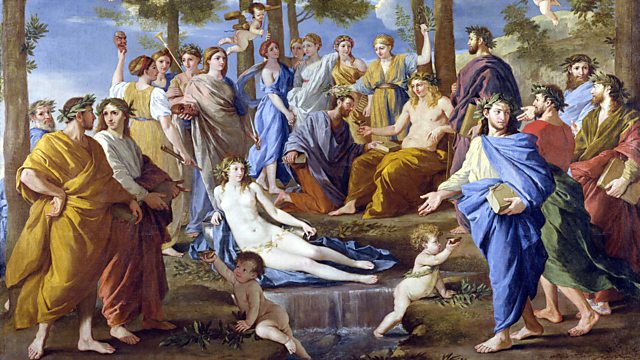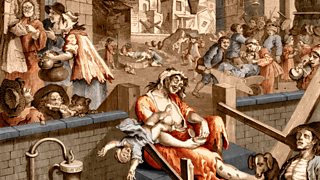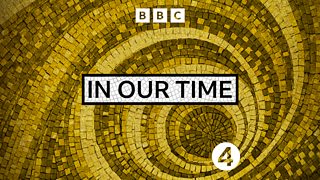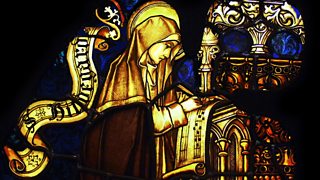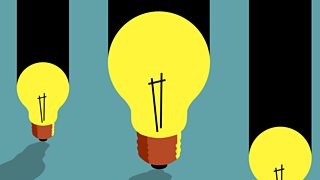The Muses
Melvyn Bragg and guests discuss the Muses in Greek mythology, goddesses who presided over the civilised arts and the life of the mind including poetry, song, music and dance.
Melvyn Bragg and guests discuss the Muses and their role in Greek mythology, when they were goddesses of poetry, song, music and dance: what the Greeks called mousike, 'the art of the Muses' from which we derive our word 'music.' While the number of Muses, their origin and their roles varied in different accounts and at different times, they were consistently linked with the nature of artistic inspiration. This raised a question for philosophers then and since: was a creative person an empty vessel into which the Muses poured their gifts, at their will, or could that person do something to make inspiration flow?
With
Paul Cartledge
Emeritus Professor of Greek Culture and AG Leventis Senior Research Fellow at Clare College, University of Cambridge
Angie Hobbs
Professor of the Public Understanding of Philosophy, University of Sheffield
And
Penelope Murray
Founder member and retired Senior Lecturer, Department of Classics, University of Warwick
Producer: Simon Tillotson
Image: 'Apollo and the Muses (Parnassus)', 1631-1632. Oil on canvas. Nicolas Poussin (1594-1665).
Last on
More episodes
Previous
Clip
-
![]()
Why are the Muses female?
Duration: 02:36
LINKS AND FURTHER READING
Paul Cartledge at the University of Cambridge
Angie Hobbs at the University of Sheffield
History of Museums - Encyclopaedia Britannica
The Library at Alexandria – In Our Time
READING LIST:
Kathleen Christian, Clare Guest and Claudia Wedepohl (eds.), The Muses and their Afterlife in Post-Classical Europe (Warburg Institute, 2014)
Pierre Destrée and Penelope Murray (eds.), A Companion to Ancient Aesthetics (Wiley Blackwell, 2015), especially ‘Poetic Inspiration’ by Penelope Murray
Hesiod (trans. M. L. West), Theogony (Penguin Classics, 2000), especially 1-115
Penelope Murray and Peter Wilson (eds.), Music and the Muses: The Culture of Mousike in the Classical Athenian City (Oxford University Press, 2004)
Homer (trans. E. V. Rieu), Iliad (Penguin Classics, 2014), especially 2.484-92
Homer (trans. E. V. Rieu), Odyssey (Penguin Classics, 2009), especially 8.62-4
Plato (trans. Chris Emlyn-Jones and Trevor Saunders), Early Socratic Dialogues (Penguin Classics, 2005), especially Ion
Plato (trans. C. J. Rowe), Phaedrus (Penguin Classics, 2005), especially 245a and 248d
Plato (trans. Trevor Saunders), Laws (Penguin Classics, 2005), especially 719c
Efrossini Spentzou and Don Fowler (eds.), Cultivating the Muse: Struggles for Power and Inspiration in Classical Literature (Oxford University Press, 2002)
Credits
| Role | Contributor |
|---|---|
| Presenter | Melvyn Bragg |
| Interviewed Guest | Paul Cartledge |
| Interviewed Guest | Angie Hobbs |
| Interviewed Guest | Penelope Murray |
| Producer | Simon Tillotson |
Broadcasts
- Thu 19 May 2016 09:00BBC Radio 4
- Thu 19 May 2016 21:30BBC Radio 4
Featured in...
![]()
In Our Time—In Our Time
The top ten episodes as suggested by listeners.
![]()
Listeners' Top 10—In Our Time
The top ten programmes as suggested by In Our Time's audience, to mark the 750th edition.
![]()
Philosophy—In Our Time
From Altruism to Wittgenstein, philosophers, theories and key themes.
![]()
Culture—In Our Time
Popular culture, poetry, music and visual arts and the roles they play in our society.
Podcast
-
![]()
In Our Time
Melvyn Bragg and guests discuss the ideas, people and events that have shaped our world.
